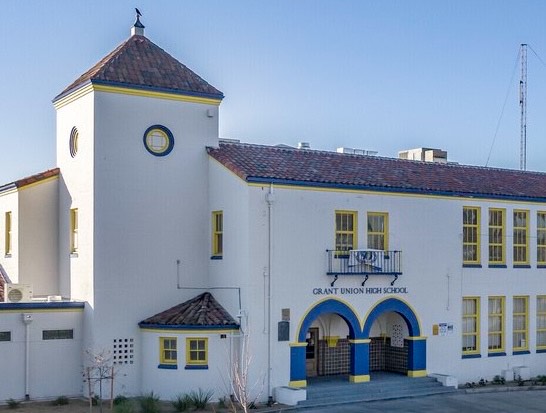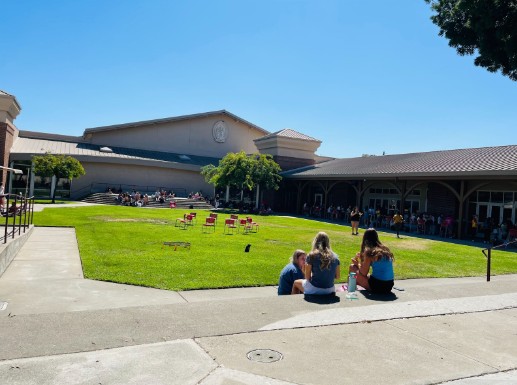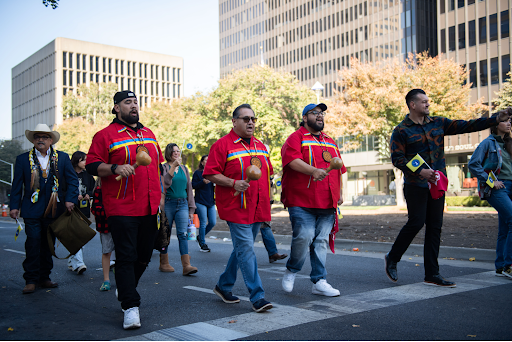DEI in Sacramento Schools: A Quick Look
“Radical” and “anti-American and woke”
That is how president Donald Trump described U.S. public schools in an executive order targeting race and gender teachings and which aims to eliminate federal funding for schools with related instruction.
Trump’s criticisms of social justice and Diversity, Equity and Inclusion (DEI) programs in schools are not new. For months he has promised an end to these initiatives as well as curriculum on gender identity and systemic racism but local districts say DEI not prioritized over academic content.
But the Jan. 29 order, “Ending Racial Indoctrination in K-12 Schooling,” represents the administration’s first concrete step to address DEI in schools, which Trump has said will “return” to the fundamentals of effective reading and math instruction.
The federal Department of Education, soon to be eliminated entirely per Trump’s pledge, has already removed its DEI training and instructional materials and ended the Diversity and Inclusion Council.
The termination of its DEI spending will save roughly $2.6 million, the department said in a press release.
However, definitions of DEI, designed to increase workplace and school diversity, vary across the political spectrum.
The movement has become a polarizing symbol of the debate over the best way to teach students about issues of race and identity.
Opinions differ widely across the education world about the value and place of DEI, but how is it showing up in Sacramento school districts? We took a look at Sacramento schools’ DEI programs to see what they entail and how much influence they actually have in the classroom.
The San Juan Unified School District, whose main equity policy is their Commitment to Educational Justice statement, has said it will continue operating as normal.
Anti-racist instruction and increasing workforce diversity are part of its equity plan, though the district did not provide specifics on how it is achieving those goals.
“No programs or policies have changed in our district,” spokesperson Raj Rai said.
In a letter to families, superintendent Melissa Bassenelli said that “it’s important to know that executive orders do not immediately change how our schools operate.
Students discussed the DEI crackdown at a Feb. 12 meeting of the Rio Americano Queer-Straight Alliance, an organization to bring LGBTQ students together. Rio Americano is a San Juan Unified high school.
The Sacramento County Office of Education (SCOE) also maintains their own DEI department with an “Equity Imperative.” The department provides training to schools on topics such as microaggressions, structural racism, and inclusion and belonging.
However, their last webinar took place in May 2023, almost two years ago, before DEI emerged as a key political issue.
Their office did not respond to requests for comment for this story.
Immediately following another Trump executive order, “Ending illegal discrimination and restoring merit-based opportunity,” the board of Roseville’s Dry Creek Joint Elementary School District became the first in the area to eliminate its equity policy.
“Eliminating a DEI policy doesn’t mean that we hate anybody or that we’re not going to provide kids with the best education that they need,” board member Jean Pagnone said.
Pagnone previously wrote in the California Globe that “our kids (are) being sterilized and mutilated in the name of gender ideology.”
A 2023 study by the Pew Research Center found that 34% of public school district mission statements mention DEI.
Sacramento schools have long been some of the most diverse in the country, with Natomas Unified ranked first, Elk Grove second and Sacramento City, according to a Niche report.
SIDEBAR STORY: Scared to Speak Out
Since president Donald Trump took office in January, a growing number of students and teachers have expressed a fear of sharing their political beliefs or speaking out, especially as the Department of Education begins to hone their attacks on various diversity programs.
As a reporter, I have noticed that some sources — primarily students from scrutinized groups like the LGBTQ community — are less willing to be quoted because of this fear. Ongoing executive orders and the president’s rhetoric have repeatedly targeted such students.
At one Sacramento high school’s recent meeting of a diversity-related club, students were instructed not to share anything about the meeting with anyone else.
About 10% of California public school students identify as LGBTQ, according to the Williams Institute
Several teachers have also told me that they worry undocumented students have been missing school out of a fear that ICE (immigration enforcement) will raid schools, despite assurances from districts like Sacramento City and San Juan Unified that they will protect all students
There are about 5,000 undocumented students under 18 in Sacramento County.









